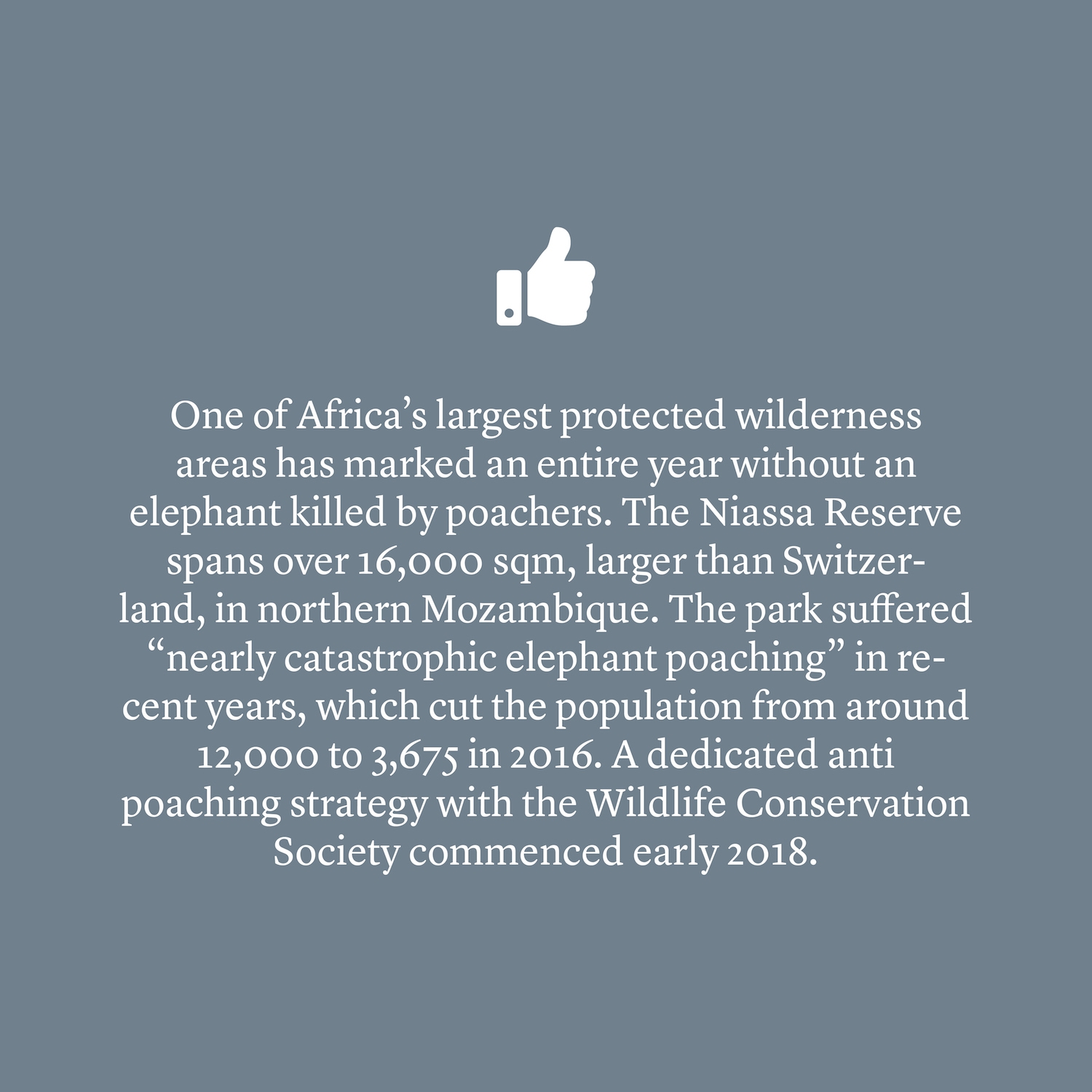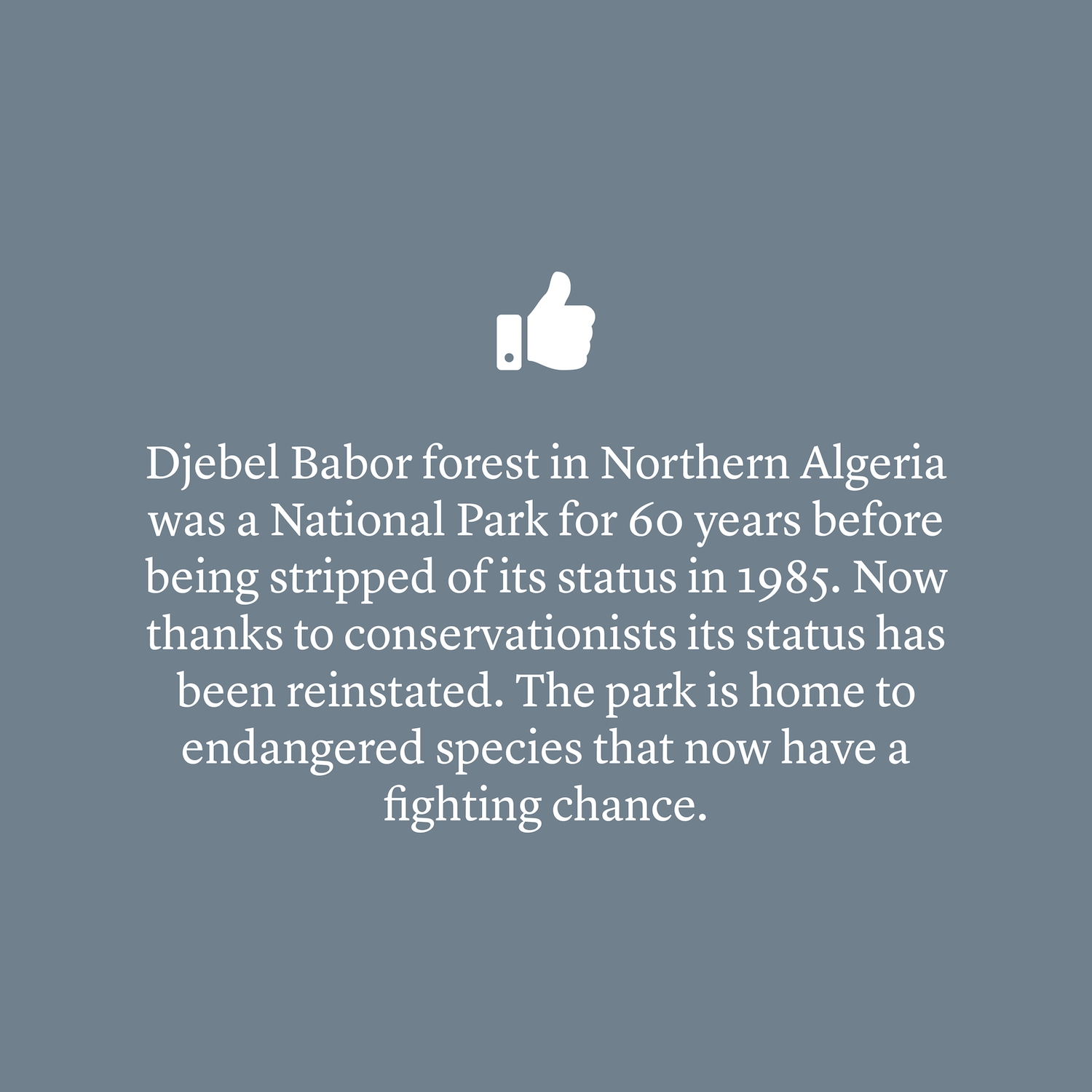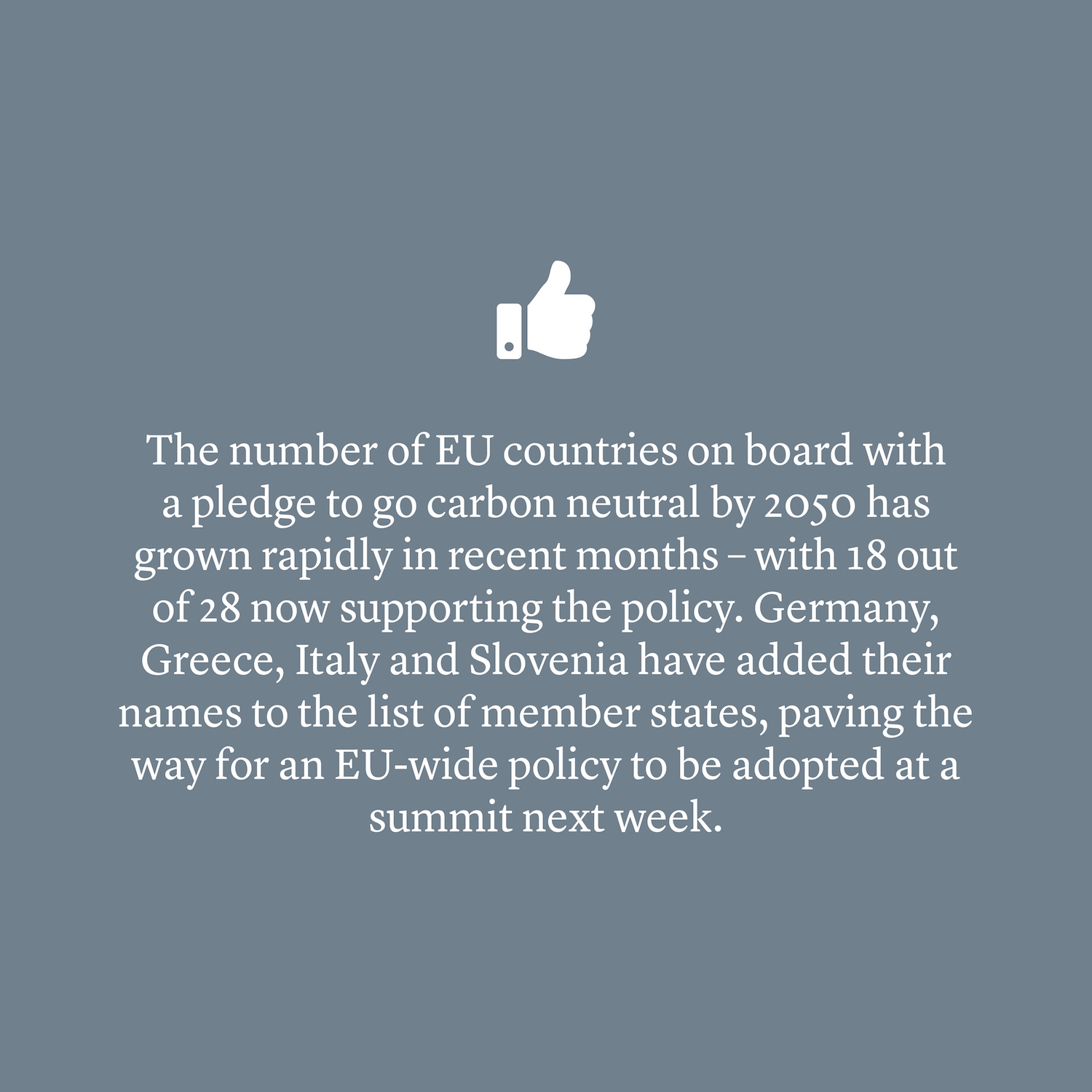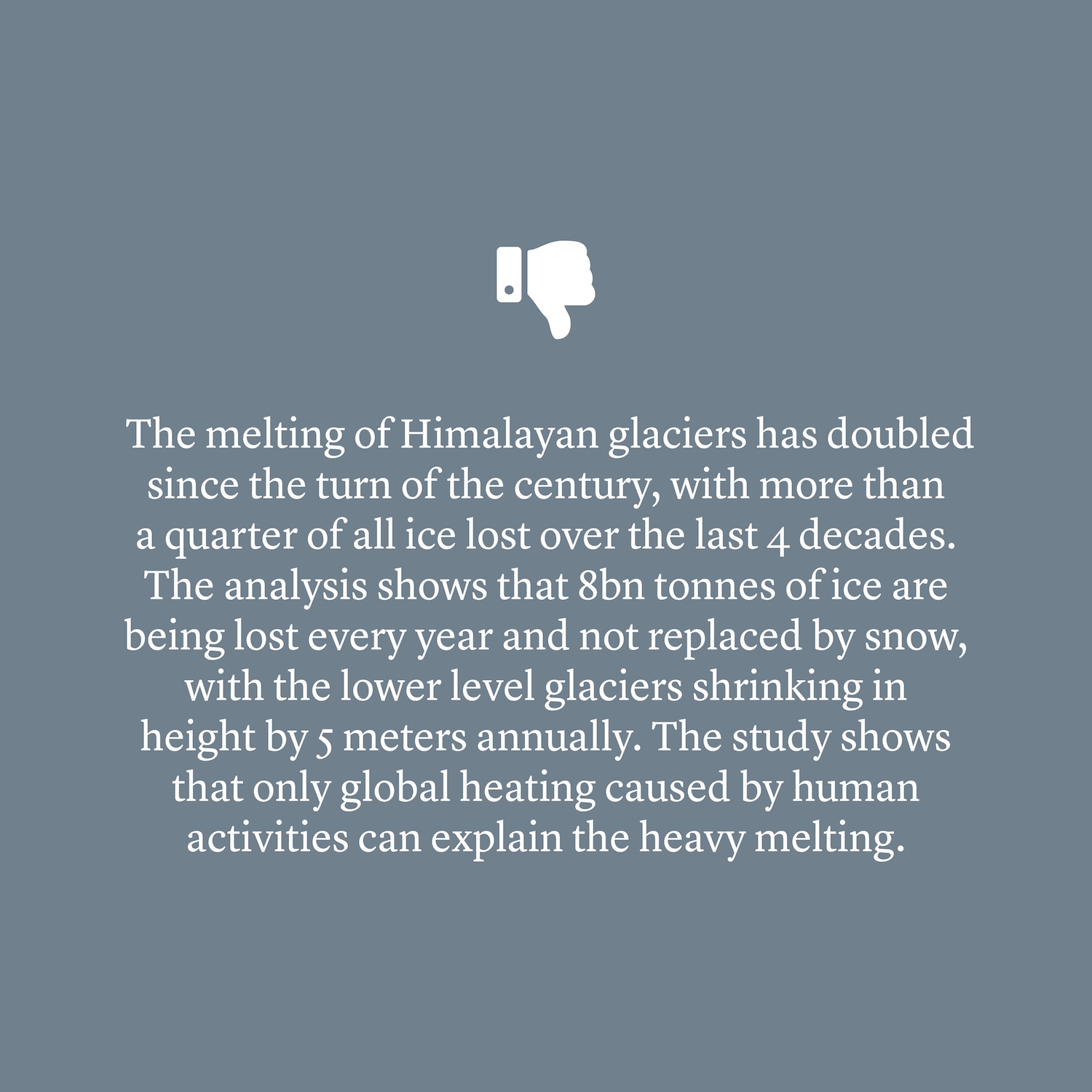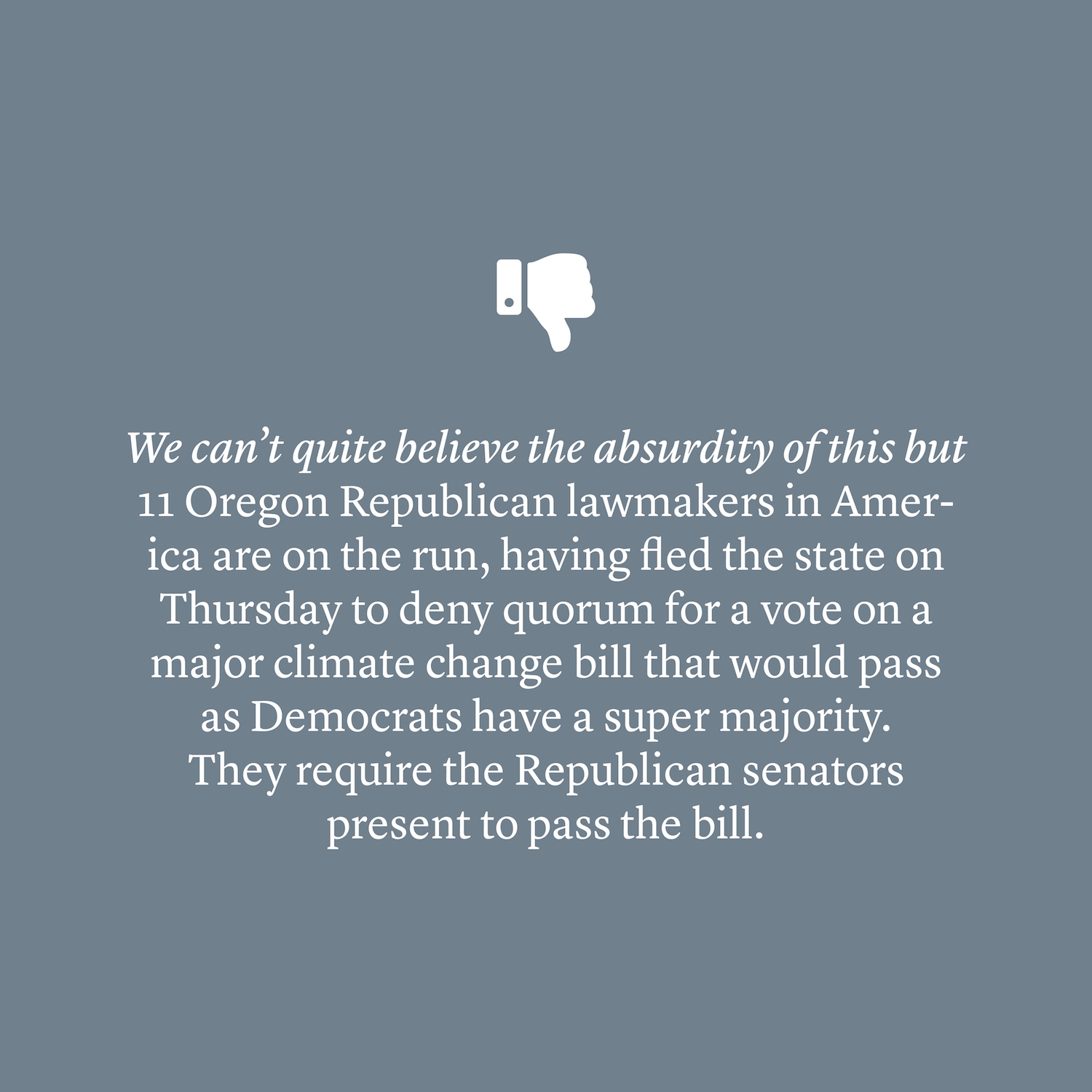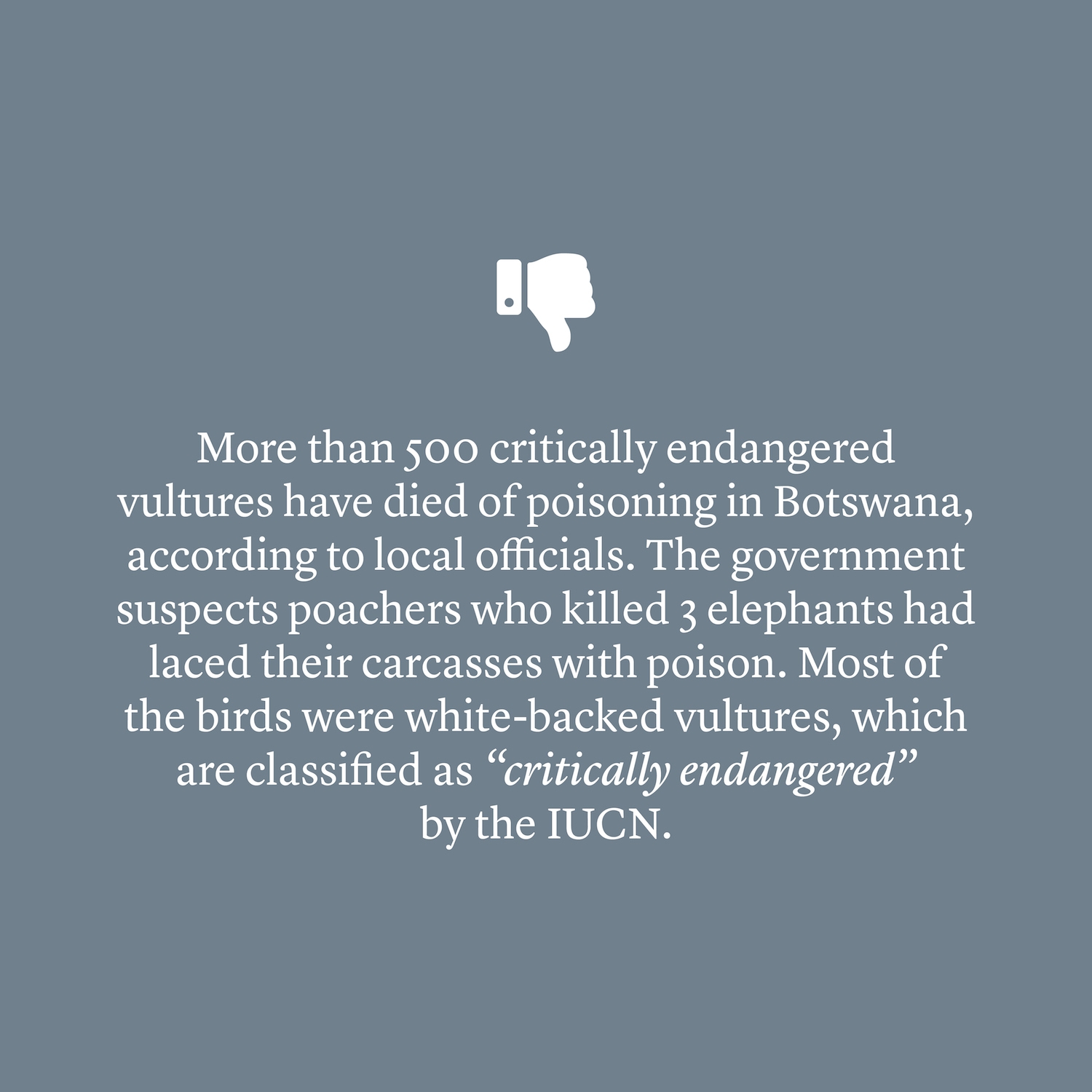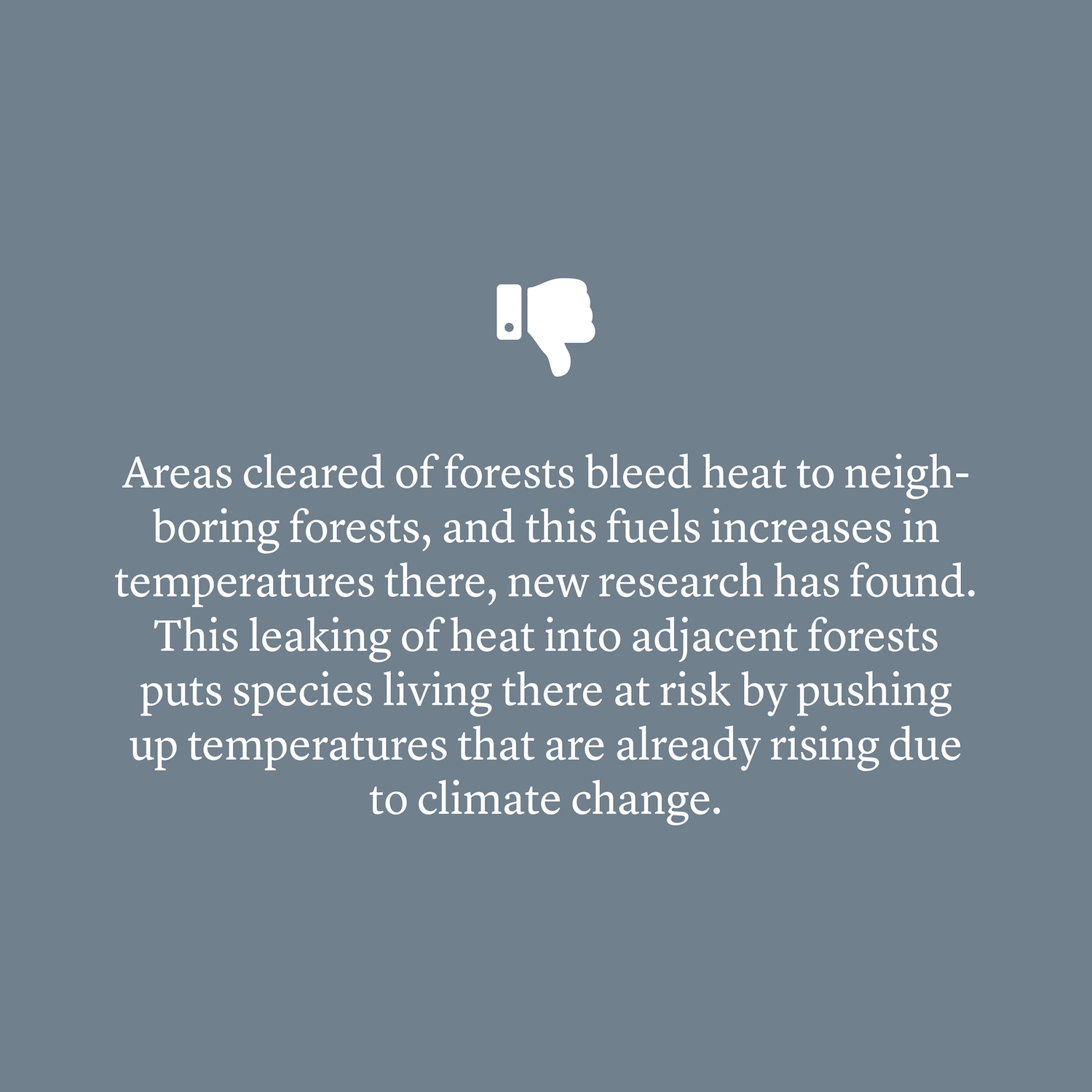World / Climate Change
1/ The melting of Himalayan glaciers has doubled since the turn of the century, with more than a quarter of all ice lost over the last four decades, scientists have revealed. The analysis shows that 8bn tonnes of ice are being lost every year and not replaced by snow, with the lower level glaciers shrinking in height by 5 meters annually. The study shows that only global heating caused by human activities can explain the heavy melting. (Science Advances / The Guardian)
Ghana / Environment
2/ Illegal fishing by foreign trawlers is decimating Ghana’s fish populations and costing the country’s economy tens of millions of dollars a year, according to researchers. An investigation claims that “saiko” fishing, whereby trawlers target the staple catch of Ghanaian canoe fishers and sell it back to fishing communities at a profit, landed approximately 100,000 tonnes of fish in 2017, worth $50m (£40m) when sold at sea and up to $81m when sold at port. More than 90% of Ghana’s industrial trawl fleet is linked to Chinese owners, who depend on Ghanaian “front” companies to bypass national laws forbidding their operation. The incomes of small-scale fishers have dropped by as much as 40% in the past 10-15 years, and Ghana is now forced to import more than half of fish consumed. (The Guardian / EJF)
World / Environment
3/ A $10tn (£7.9tn) investor alliance has accused more than 700 companies, including Amazon, Tesco and ExxonMobil, of failing to reveal the full extent of their impact on the climate crisis, water shortages and deforestation. The CDP said 546 companies were being targeted to disclose information on the climate crisis, 166 on water security and 115 on deforestation. More than 7,000 companies already disclose their environmental impact through the CDP (Climate Disclosure Project) platform. The US is home to the highest number of companies named in the campaign, accounting for a fifth of the list, followed by Australia at 16%. (The Guardian)
World / Deforestation
4/ Areas cleared of forests bleed heat to neighboring forests, and this fuels increases in temperatures there, new research has found. This leaking of heat into adjacent forests puts species living there at risk by pushing up temperatures that are already rising due to climate change. (Mongabay)
Botswana / Animals
5/ More than 500 critically endangered vultures have died of poisoning in Botswana, according to local officials. The government suspects poachers who killed 3 elephants had laced their carcasses with poison. Most of the birds were white-backed vultures, which are classified as “critically endangered” by the International Union for Conservation of Nature. (BBC)
The Guardian has started a new 6 months series titled The United States of Plastics on the plastic waste crisis in America. America is a nation in a plastic-coated crisis. See it here.
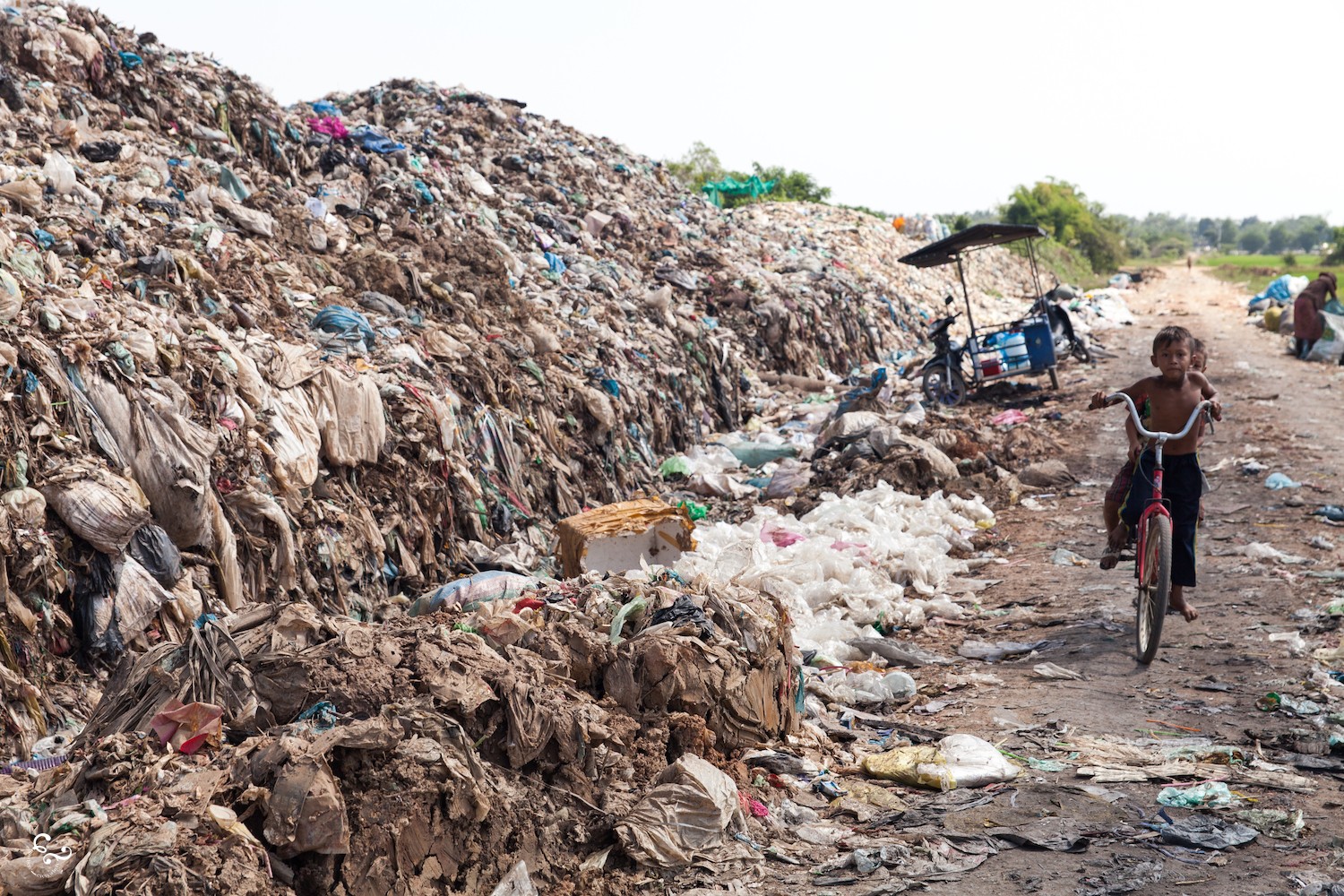
The good news…
Algeria / Environment
6/ Djebel Babor forest in Northern Algeria was a National Park for 60 years before being stripped of its status in 1985. Now, despite political upheaval, thanks to conservationists its status has been reinstated. The park is home to endangered species that now have a fighting chance. (Bird Life)
EU / Climate Change
7/ The number of EU countries on board with a pledge to go carbon neutral by 2050 has grown rapidly in recent months – with 18 out of 28 now supporting the policy. Germany, Greece, Italy and Slovenia have added their names to the list of member states, according to internal EU documents – paving the way for an EU-wide policy to be adopted at a summit next week. (Independent)
United States / Climate Change
8/ New York is the fourth most populous state in the US and its third-largest economy. Now it is poised to adopt the country’s most ambitious climate targets, including 100 percent carbon-free electricity by 2040 and economy-wide, net-zero carbon emissions by 2050. New York now joins California, Nevada, Hawaii, Washington, New Mexico, Washington, DC, and Puerto Rico in targeting 100% clean power. New York’s bill would set one of the most ambitious climate targets by a legislature anywhere in the world. (Vox/ NYT)
Mozambique / Animals
9/ One of Africa’s largest protected wilderness areas has marked an entire year without finding a single elephant killed by poachers. The last time an elephant was recorded killed by a poacher in Mozambique’s Niassa Reserve was May 17, 2018, according to the Wildlife Conservation Society. The Niassa Reserve spans over 16,000 square miles — which is larger than Switzerland — in a remote part of northern Mozambique. The park suffered “nearly catastrophic elephant poaching” in recent years, the Wildlife Conservation Society said, which cut the population from around 12,000 to 3,675 in 2016. African elephants are considered “vulnerable” to extinction on the International Union for Conservation of Nature’s Red List of Threatened Species. (ABC / Wildlife Conservation Society)
Other notables…
- Researchers concluded that, in late 2018, the entire bitcoin network was responsible for 22–22.9 million tonnes of CO2 per year — similar to a large Western city or an entire developing country like Sri Lanka. (ABC /
- 27 Small Island Developing States have come together in a bid to manage and eliminate toxic chemicals and waste in some of the world’s most vulnerable ecosystems under a new initiative, the Implementing Sustainable Low and Non-Chemical Development in Small Island Developing States program – or ‘ISLANDS’ – will support island states across the Caribbean, the Pacific and the Indian Ocean to manage the growing impacts of chemicals and wastes on their unique environments. (UN)
- Monkeys living in South America are highly vulnerable to climate change and face an “elevated risk of extinction,” according to a new University study. (Journal)
- Thousands of critically endangered Bermuda Land Snails have been released into the wild after being rescued from the edge of extinction. (BBC)
- Ammonia and nitrogen pollution, mostly from farms, is harming more than 60% of the UK’s land area and hitting the most sensitive habitats for plants and wildlife hardest, a government report has found. More than 85% of England’s total land area receives ammonia concentrations above the critical level set to protect lichens, mosses, liverworts and similar plants – keystone species that are vital to ecosystems. Experts and activists are calling for urgent government action to stem the rise of ammonia emissions, nearly 90% of which come from farms. (The Guardian)
- Diplomats and climate experts gathered in Germany for talks focusing on resolving issues that couldn’t be agreed upon at last December’s climate summit in Poland. (ABC)
- Sadiq Khan, London’s Mayor, has announced plans to implement London’s biggest car-free day to date, closing 12.3 miles (20km) of roads in the capital to help tackle the capital’s air pollution crisis. (The Guardian)
- Beekeepers across the US lost 4 in 10 of their honeybee colonies over the past year, as the worst winter on record for tracked bee populations raised fresh concerns over the plight of the crucial pollinators. Researchers said the numbers were concerning given the intensive efforts to stem the loss of honeybees, which pollinate an estimated $15bn in US crops each year (The Guardian)
- The Trump administration is finalizing plans to roll back the US government’s only direct efforts to curb coal-fired power plant pollution that is heating the planet. Obama’s Clean Power Plan would have pushed power companies to shift away from coal and toward natural gas and renewable power. Trump’s rule instead sets out ways for states to direct coal plants to increase their efficiency, with hardware fixes or operational changes. (The Guardian)
- The UK is set to host a critical global summit on the climate crisis at the end of 2020, at which the world’s 190 nations must commit to deep cuts in emissions. The 2020 summit is seen as the deadline by which leaders must fully adopt the Paris deal and bring forward action plans to keep the global temperature rise to as close to 1.5C as possible. This requires halving global emissions by 2030 and ending emissions within a few decades of that. (The Guardian)
- The British research submarine Boaty McBoatface has made an impressive debut in the scientific arena, discovering a significant link between Antarctic winds and rising sea temperatures on its maiden outing. Its findings, published in the journal PNAS, revealed how increasingly strong winds in the region are causing turbulence deep within the sea, and as a result mixing warm water from middle levels with colder water in the abyss. That process is causing the sea temperature to rise, which in turn is a significant contributor to rising sea levels, scientists behind the project said. Antarctic winds are growing in strength due to the thinning of the ozone layer and the build-up of greenhouse gases, but their impact on the ocean has never been factored in to climate models. (CNN)
- In a perplexing move, 11 Oregon Republican lawmakers are on the run from the law, having fled the state Senate in Salem on Thursday to deny quorum for a vote on a major climate change bill that would pass as Democrats have a super majority. They require the Republican senators present to pass the bill. (Vox)

